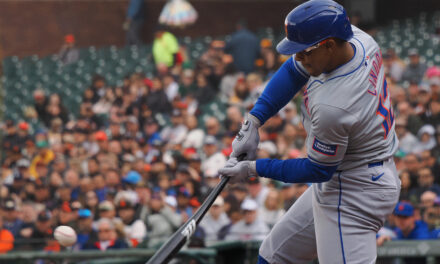When you think about Charlie Samuels’ recent sports betting bust, you can’t help but be a little creeped out. Sure, it’s sleazy to give out insider information on the Mets for gambling purposes and using the company account as a personal bank; it’s quite another to be caught knee-deep in hundreds of thousands of dollars in mob debt. But what if it had been someone else, perhaps a player, or a pitching coach, without mob ties?
Is it ethical for players to bet on themselves, or against? Of course not: it creates an obvious conflict of interest. The fact of the matter is that friendly wagers always happen, whether it’s competing with another pitcher that he can’t strike out two Yankees in a row or promising his wife a vacation if the world series goes your way. But when athletes cross the line between friendly wagers into unhealthy impulses, it can make you think twice about their game performance. You can’t be sure, but sites like GameBookers.com could be populated by Mets fans in their living rooms and athletes in the locker rooms alike.
Sports betting has been making many unsavory headlines these days: college sports in particular are getting hit the worst, especially the NCAA. In 2004, ESPN reported that 10% of college female athletes and 3Sports Betting and Sportsmanship5% of college male athletes were involved in gambles that may have affected the scores and results of certain games. Aren’t college athletes supposed to be in it for the love of the game? Pros, too, but since when are they not making enough money?
The Mets look ahead to the 2011 season with promising prospects like Ike Davis and Jon Niese. With a little clean-up and a solid opening, the Mets will easily brush off the Samuels betting scandal and improve their image. There’s nothing wrong with a friendly wager or two, though it shouldn’t put you out thousands of dollars and disappoint millions of fans.














